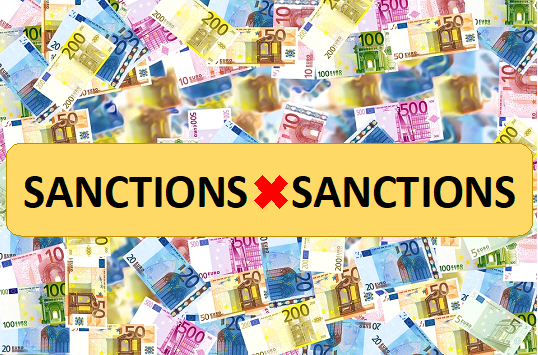5 CPD
Course Description
Obliged entities should develop, establish and implement sanctions policy, sanctions manuals, policies and procedures based on the Sanctions Law, Sanctions Directive and relevant guidelines from supervisory authorities that encompass deep understanding of the legal requirements and should be designed to ensure compliance with the applicable Sanctions Laws.
Senior management has the ultimate responsibility for ensuring the designing, development and implementation of an effective Sanctions Compliance Program, policies, and procedures by which the risks identified in the Company’s sanctions risk profile are managed in a manner commensurate with the magnitude and complexity of such risks.
This course describes the content of a sanctions policy and outlines a Sanctions Compliance Program. An obliged entity should develop a sanctions policy outlining the principles to be followed in order to comply with the requirements of the Sanctions’ Laws and also the mitigation of risks arising from the sanctions risk assessment.
This course also describes sanctions, sanctions issuing authorities and the most common categories of sanctions.
Sanctions referred to restrictions and/or prohibitions on activity with targeted countries, governments, groups, natural and legal persons, and industries that are imposed by bodies such as the United Nations and the European Union. Sanctions are an essential tool which is used to prevent conflict or respond to emerging or current crises. They are non-punitive measures and are intended to respond to negative political change and aim at restoring international peace and security and to enforce security interests without resorting to military action.
Sanctions and Restrictive Measures are issued by the United Nations, the European Union and individual states. Cyprus is legally obliged to abide by the UN and EU sanctions regimes and its legal framework consists of both primary and secondary legislation.
Firms should be able to contact an assessment of whether their clients are affected by sanctions. This course describes the tests to be performed to assess whether a client is affected by sanctions, like for example Ownership and control criteria and provides examples for easy understanding.
In addition, this course describes how designated persons may often use a variety of tactics to circumvent sanctions and provides a number of those tactics. It also provides a list of sanctions indicators and red flags.
Topics covered
The course is split into the following sections:
Section 1: Introduction
- Senior Management responsibility – Development of Sanctions policy
- Purpose of the Sanction Policy
- Legal Framework
- General Principles
Section 2: What are Sanctions?
- Description of sanctions
- Issuing authorities
- EU and UN
- Financial sanctions
- Individual country sanctions regimes
- The United Nations Security Council (UNSC)
Section 3: Categories of Sanctions
- Comprehensive sanctions
- Regime-based sanctions
- Sectoral sanctions
- List-based sanctions
- Combination of types of sanctions
- Application of sanctions
Section 4: Assessment of whether a client is affected by sanctions
- Ownership and control criteria
- Family members or other non-designated third parties
- Minority interests
- Joint Interests
- Exemptions and authorization
- Sanctions circumvention
Section 5: Sanctions Compliance Program
- Description of a Sanctions Compliance Program
- Mitigating measures on sanctions risk
- Key considerations
- Responsibilities of the Compliance Officer
Section 6: Specific prohibitions & restrictions
- Specific prohibitions & restrictions
- Freezing and unfreezing accounts subject to sanctions
- Monitoring and review
- Consequences of non-compliance
Section 7: Sanctions indicators
- Sanction indicators for detection of frozen asset transfers
- Indicators of Sanctions Evasion Using CVC – Red flags
- Sanctions indicators for detection of enablers
- Sanctions indicators for detection of suspicious payments
- Industry Recommendations
- Real estate – Red flags
- Artworks – Red flags
- Precious Metals, Stones, and Jewelry (PMSJs) – Red flags
- Other High-Value Assets – Red flags
Course Duration
This course may take up to 5 hours to be completed. However, actual study time differs as each learner uses their own training pace.
The course is addressed to:
This course is addressed to all individuals who are involved in the financial industry (forex, brokers, funds, banks, etc) as well as administrative service providers (ASPs) supervised by CySEC, ICPAC and CBA and in general any firm that is affected, due to the nature of its business, by sanctions.
This course is also addressed to all individuals who practice Anti-Money Laundering or interested to learn or enhance their knowledge in sanctions such as:
- Executive Directors, Non executive directors, Senior Managers.
- Compliance/AML Managers/ Risk Managers and staff in Banks, Investment Firms, Investment Funds, ASPs, Trust Service Corporate Providers, Accountants, Auditors and Lawyers.
- Employees of Banks, Investment Firms, Investment Funds, ASPs, Trust Service Corporate Providers, Accountants, Auditors and Law Firms who are involved or interested to learn or enhance their knowledge in sanctions.
- Internal Auditors
- Consultants
- Lawyers
It is also suitable to professionals pursuing CPD in Regulatory Compliance and Anti-Money Laundering for the renewal of CySEC Certificate (CySEC Basic or CySEC Advance Certificate or CySEC AML Certificate) or other relevant certificates in other jurisdictions.
Training Method
The course is offered fully online using a self-paced approach. The learning units consist of power point presentations. Learners may start, stop and resume their training at any time.
At the end of the course, participants take a Quiz to complete the course and earn a Certificate of Completion once the Quiz has been passed successfully.
Accreditation and CPD Recognition
The course can be accredited by regulators and other bodies for 5 CPD Units that require CPD training in financial regulation and/or Anti-Money Laundering. The course may be also approved for up to 5 CPD Units by institutions that approve general financial and/or AML training, such as the CySEC, ICPAC, CBA, CISI, ICA and ACAMS.
Eligibility criteria and CPD Units are verified directly by your association or other bodies in which you hold membership.
Registration and Access
To register to this course, click on the Take this course button to pay online and receive your access instantly. If you are purchasing this course on behalf of others, please be advised that you will need to create or use their personal profile before finalizing your payment.
Access to the course is valid for 60 days.
If you wish to receive an invoice instead of paying online, please Contact us by email. Talk to us for our special Corporate Group rates.
Instructor
George Papanicolaou has more than 20-years experience in the Financial industry. He worked for several years in managerial positions as area Manager, Head of Brokerage, Compliance Officer, Anti Money Laundering Officer, General Manager and Executive Director in Cypriot Investment Firms as well as Managing Director of GP GLOBAL LTD offering consulting services and training courses to Investment Firms, focuses in Internal Audit, compliance & AML issues. He offered numerous courses/seminars both in Cyprus and abroad in Investment Firms Law as well as in Compliance & Anti Money Laundering. George Papanicolaou is also a Chairman of a Nomination Committee in a company listed in the Oslo Stock Exchange.
George Papanicolaou holds a BSc in Electronic Engineering from the University of Texas at Austin (USA), an MBA with specialization in Finance from Leicester University (UK) and a Postgraduate Certificate in the Mechanics of Risk Management from Middlesex University (UK).
He also holds an ICA International Diploma in Anti Money Laundering from the International Compliance Association and the University of Manchester, as well as an Advance and Money Laundering certificate from the Cyprus Securities and Exchange Commission for the provision of investment services/activities.
He is a Fellow of the International Compliance Association (FICA), Mentor of ICA new students, member of the Cyprus Institute of Internal Auditors and the first Network chair for Cyprus of the International Compliance association.
See more Courses from George Papanicolaou


